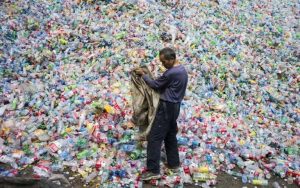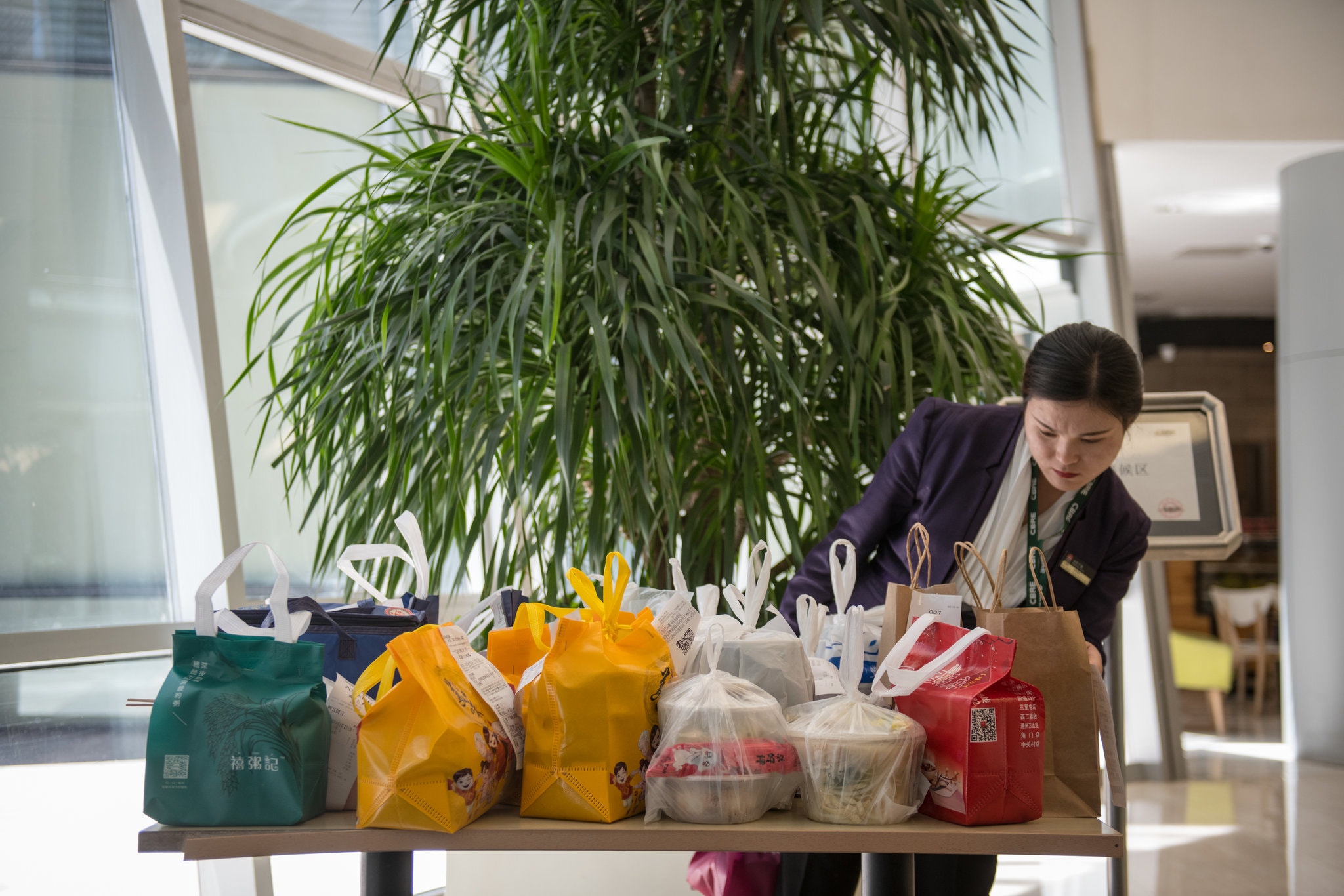Single-use plastic has been a hot topic of debate recently. Should we ban it and why are we banning it? Even UBC has aimed to ban all single-use plastic cups and utensils on campus. Recently, China has vowed to ban the use and restrict the production of single-use plastics nationwide. By the end of 2025, all vendors will have to eliminate the use of foam takeout boxes, plastic straws and utensils, as well as plastic bags. However, is banning plastic even an effective way in conserving the ocean ecosystem and will there any socioeconomic repercussions from this ban?
With a population size nearing 1.4 billion people, China produces the most plastic waste globally and three-quarters of it ends up in the ocean. With the evolution of food delivery apps around the world, saw an uptick in the use of plastic containers. Take-out deliveries are especially prominent in China, with more than 10 billion deliveries made last year. All the plastic containers used by these delivery services accumulate and degrade into small microscopic shards of plastics called “microplastics” that take centuries to fully disintegrate. Microplastics endanger marine life and most end up in the stomachs of fish and marine animals, where they are indigestible or potentially fatal. Eradicating the use of these containers, will immensely reduce the volume of microplastics that end up in the ocean.

Microplastics found in the digestive tract of a fish Credit: The Guardian
However, what will replace plastic containers once this ban is enforced? Industry giants may choose to make the shift the biodegradable plastics, but the infrastructure to process biodegradable plastics is practically non-existent. China already has pre-existing problems with their recycling program, with 75% of plastics not being recycled and returned to landfill. A large influx of biodegradable plastics may be a burden on current recycling programs. Furthermore, there is an additional conversation to be had on whether biodegradable plastics are truly better for the environment when a majority still require industrial facilities to break down.

Credit: South China Morning Post
Another concern is the socioeconomic fallout from the ban, which also bars the production of single-use plastic cutlery, plastic packaging, and chemicals with microbeads. Given that China is the largest producer of plastic in the world, this new plan will inevitably put millions out of jobs.

China’s new policy will halt the production of all single-use plastic cutlery nationwide starting in 2020. Credit: Getty Images
Limiting plastic waste is an important step in relieving the pressures on the ocean. Especially with the promise of such a populous country, this ban will unquestionably reduce the pressure of plastic pollution on the ocean. On the other hand, we need to start addressing the other, larger, and more threatening pressures on the ocean. Pollution from other ocean activities such as deep-sea mining and shipping vessel oil leaks continue to pose problems and till this day, fishing remains the largest pressure on ocean habitats. Tackling these problems may increase the chance that ocean life will be able to withstand future temperature fluctuations.
___________________________________________________________________________________________________
References:
Buckley, C. (2020, January 20). China Says It Will Ban Plastics That Pollute Its Land and Water. Retrieved from https://www.nytimes.com/2020/01/20/world/asia/china-plastic.html
Cassella, C. (n.d.). China Just Declared a Large-Scale War on Single Use Plastics. Retrieved from https://www.sciencealert.com/china-just-declared-a-large-scale-war-on-single-use-plastics
Global, F. F. (2020, January 29). BREAKING NEWS: China to Ban Single-Use Plastics. Retrieved from https://www.afoodieworld.com/foods-future-summit/breaking-news-china-to-ban-single-use-plastics
Oakes, K. (2019, November 5). Why biodegradables won’t solve the plastic crisis. Retrieved from https://www.bbc.com/future/article/20191030-why-biodegradables-wont-solve-the-plastic-crisis
Peters, A. (2020, January 22). The problem with China’s single-use plastic ban: What will replace the plastic? Retrieved from https://www.fastcompany.com/90454627/the-problem-with-chinas-single-use-plastic-ban-what-will-replace-the-plastic
Zhong, R., & Zhang, C. (2019, May 28). Food Delivery Apps Are Drowning China in Plastic. Retrieved from https://www.nytimes.com/2019/05/28/technology/china-food-delivery-trash.html?action=click&module=RelatedLinks&pgtype=Article
Additional sources linked throughout
